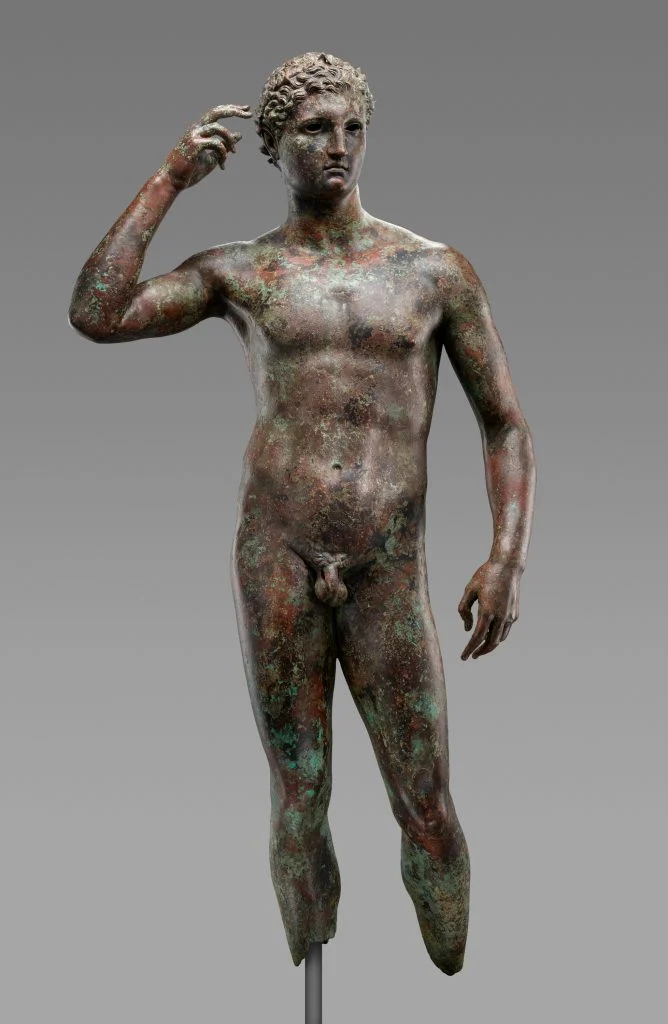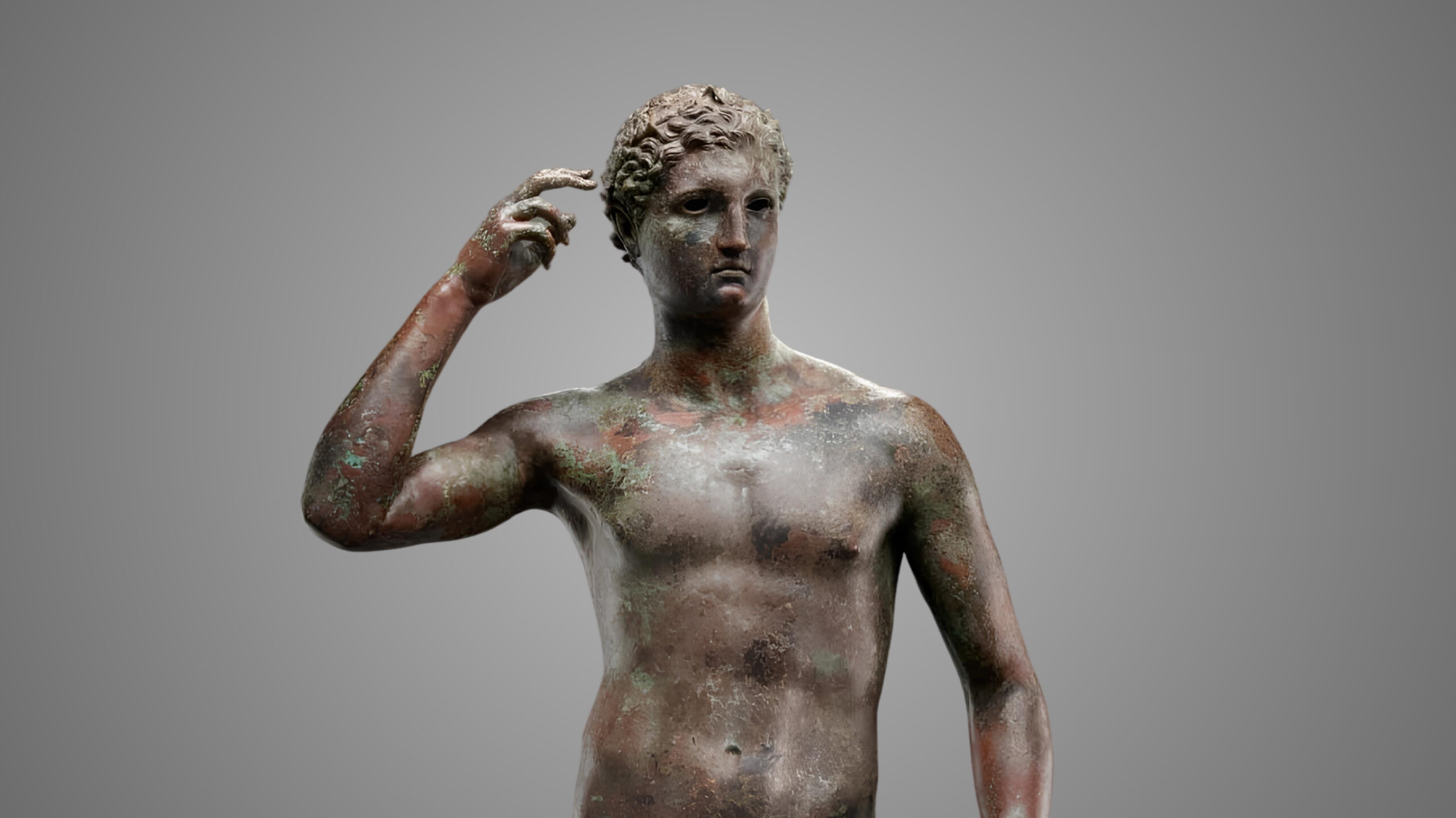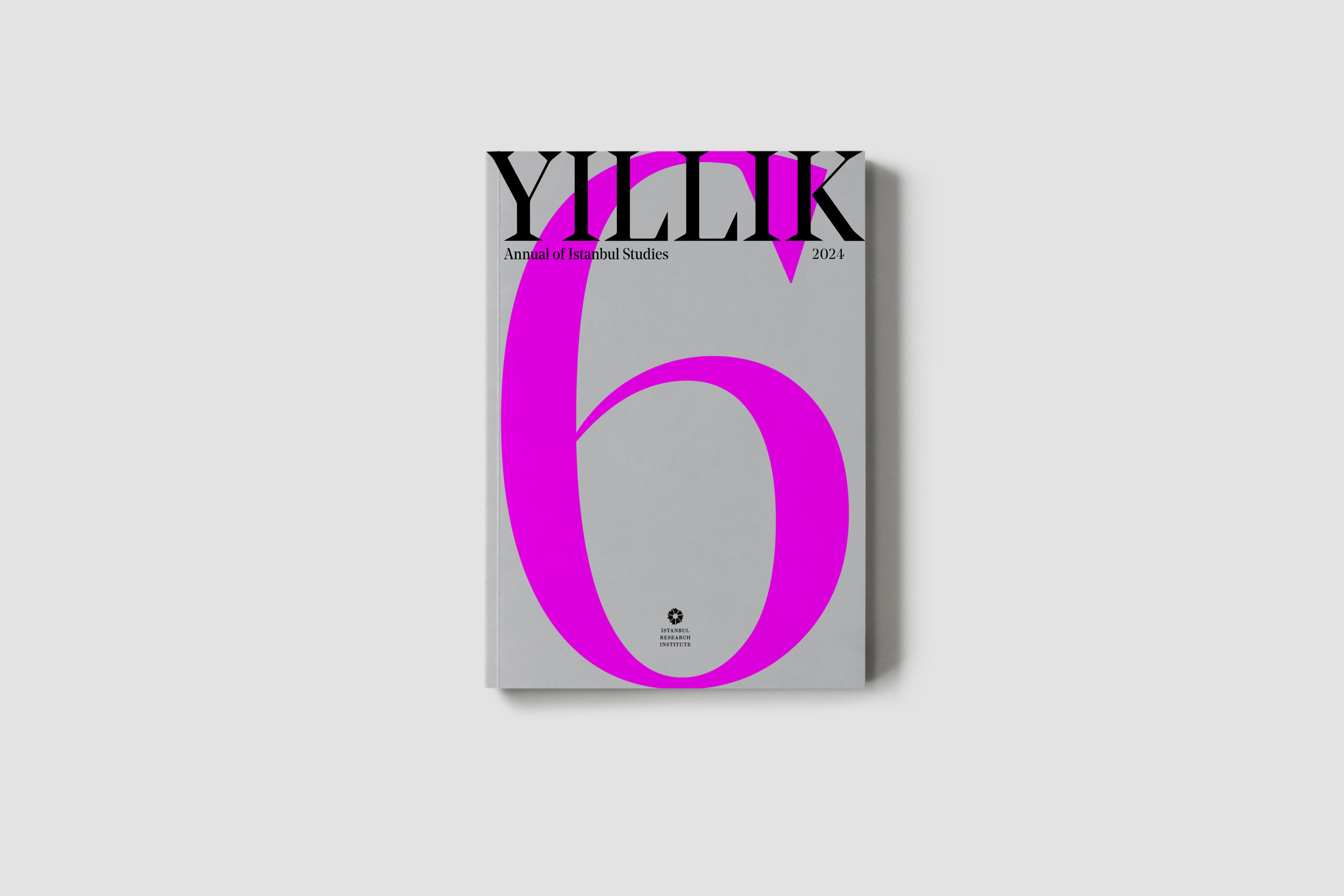The European Court of Human Rights (ECHR) has ruled that Italy is the rightful owner of an ancient Greek statue that the Getty Museum in Los Angeles has been holding for years and is one of the museum’s highlights. The Italian government had been trying to get the statue back for years.
Italy’s pursuit of the statue is part of a years-long campaign to reclaim antiquities looted from the country’s territory and sold to museums and private collectors around the world.
Experts believe that the statue “Victorious Youth” was created by an unknown sculptor in Ancient Greece between 300-100 BC and transported to what is now Italy by the Romans a few years later. The ship carrying the statue is believed to have sunk and the statue remained at the bottom of the Adriatic Sea until it was found by Italian fishermen in international waters in 1964.
Italy’s Attempts to Reclaim the Statue
Italian authorities allege that the statue was illegally smuggled abroad before it was purchased by the Getty Museum in 1977 for around $4 million. Prior to the Getty Museum’s purchase, Italian authorities had made several unsuccessful attempts to recover the statue, including appeals to authorities in countries through which it had transited and investigations by the international police organization Interpol.

European Court of Human Rights Decides
Most recently, in 2018, the Getty Museum appealed the Italian Court of Appeal’s decision to confiscate and return the statue, but the Italian court reaffirmed the decision. The Getty Museum then claimed that its rights to the statue under the European Protocol on Human Rights for the Protection of Property had been violated by Italy’s campaign to recover the statue. Thus, the matter was taken to the European Court of Human Rights. On Thursday last week (May 2), the ECHR delivered its judgment:
“The Court reiterated that the protection of a country’s cultural and artistic heritage was a legitimate aim for the purposes of the Convention. The Court further held that owing to the Getty Trust’s negligence or bad faith in purchasing the statue despite being aware of the claims of the Italian State and their efforts to recover it, the confiscation order had been proportionate to the aim of ensuring the return of an object that was part of Italy’s cultural heritage.”
“This is not just a victory for the Italian government. It’s a victory for culture,” said Maurizio Fiorilli, who as a lawyer for the Italian government led the effort to recover Italy’s looted antiquities, particularly the bronze statue, from the Getty.
The Getty Museum Did Not Back Down
Italy called the court ruling a “victory”, but the Getty Museum issued the following statement after the decision on May 2:
“We believe that Getty’s nearly fifty-year public possession of an artwork that was neither created by an Italian artist nor found within the Italian territory is appropriate, ethical and consistent with American and international law.”
Since the US is not a member of the ECHR, and therefore its decisions are not binding, the future course of the dispute is uncertain. Getty has long defended his right to the statue, saying Italy has no legal right to it. Maintaining his current stance, Getty vowed on the day of the trial to continue his legal battle to keep the statue.







